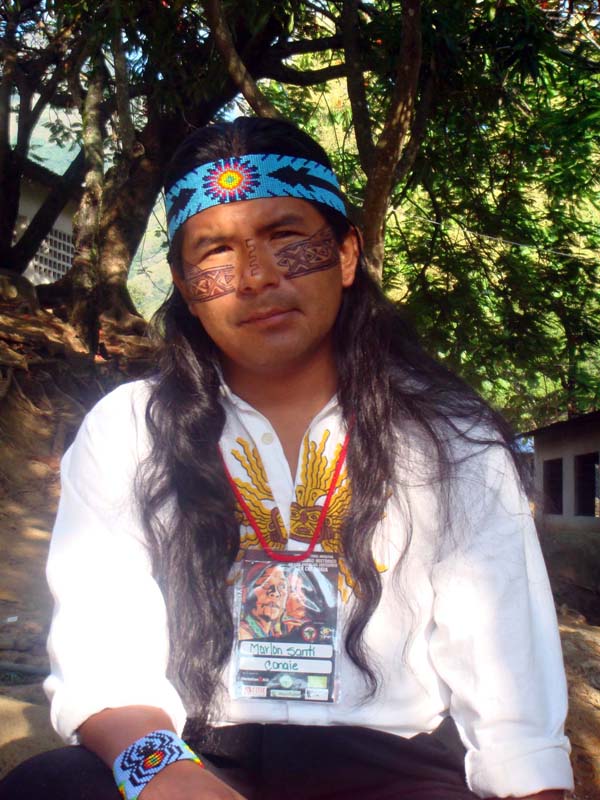|
|
DAMS, HIGHWAYS, DEFORESTATION
IIRSA proposes a series of more than 335 projects — including 40 mega-projects — that will bring dams, highway construction, widespread dredging, large-scale agriculture, deforestation and resource extraction to the Amazon Basin, Brazil's Pantanal, and major rivers throughout South America. The initiative is being coordinated by 12 South American governments with the financial support of multilateral development banks.
The National Authority of Indigenous Governments (ONIC) (formerly the National Indigenous Organization of Colombia) sponsored the Forum to hear serious concerns of indigenous nations who will be impacted by these projects.
More than 400 people attended the forum. They fear the environmental and social impacts on indigenous land and peoples will be devastating because historically these types of projects have displaced indigenous peoples from their homelands and denied them the use or benefits of their natural resources.
PROTECTING INDIGENOUS RIGHTS
Crippa's presentation focused on what indigenous communities can do at the international level regarding the potential impacts of IIRSA. He highlighted the available mechanisms that can be used by project-affected indigenous communities in order to challenge IIRSA.
Crippa recommended the use of the Inter-American Human Rights System in order to prevent and redress human rights violations that may occur or have already occurred as a result of specific projects related to IIRSA.
He emphasized the possibility of filing complaints before the Inter-American Development Bank's (IDB) internal inspection mechanism whenever there is IDB funding involved in a specific project. This mechanism is available for project-affected indigenous communities whenever there is not only a lack of implementation of the IDB Operational Policy on Indigenous Peoples, but also considerable harms or negative impacts in detriment to them.
Crippa and other staff from the Center will continue to inform and provide training to indigenous communities about human and collective rights in order to help them protect their communities.
For further information concerning the Latin American Forum, see the National Indigenous Organization of Colombia's web site http://www.onic.org.co/
